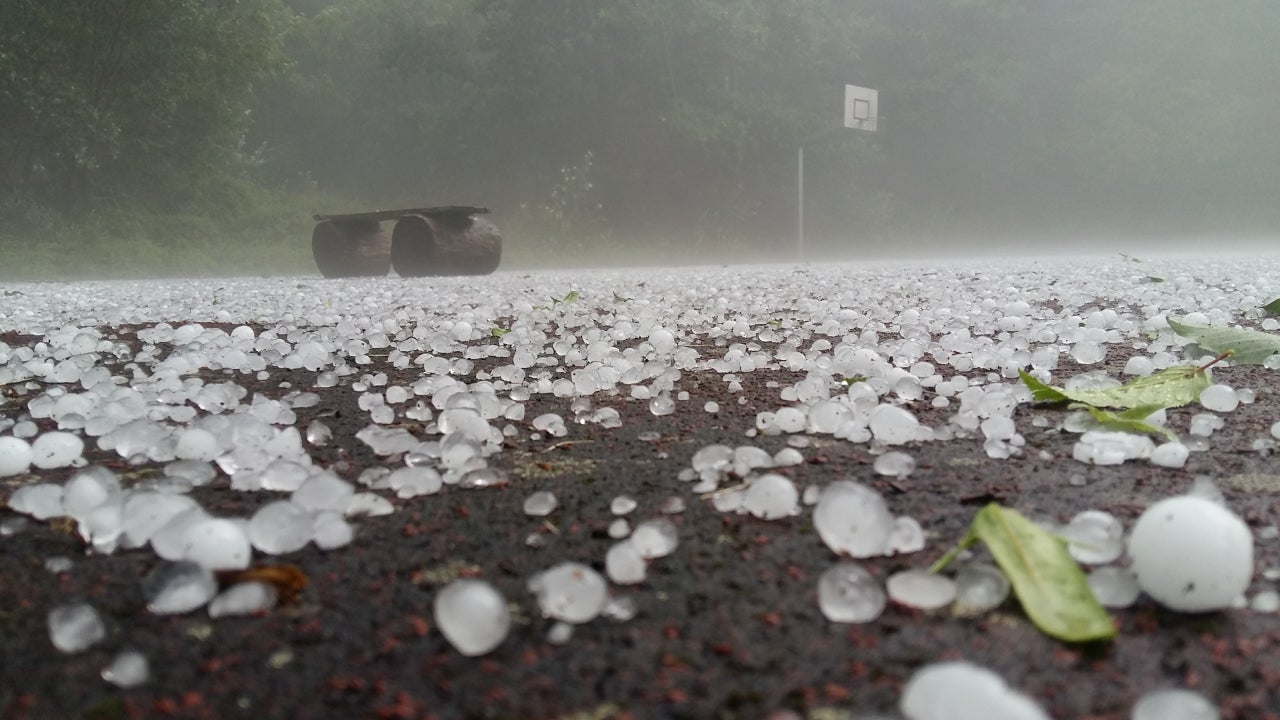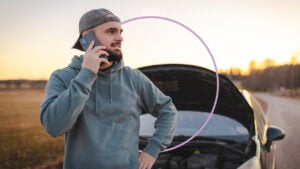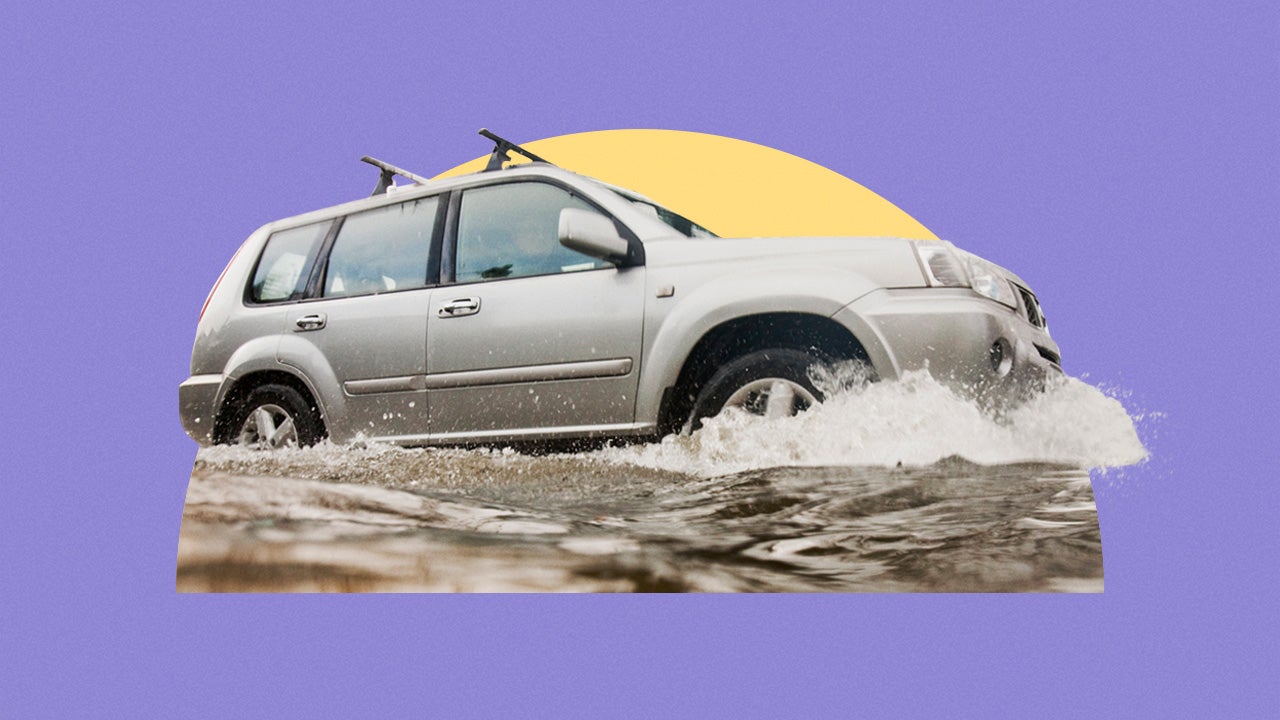Does car insurance cover hurricane damage?

Key takeaways
- For your car to be covered for hurricane damage, you’ll need to carry comprehensive insurance.
- Insurance companies may place a moratorium on selling new car insurance policies or updating active ones if a storm warning is in effect.
- Preparing your car for an impending hurricane may help keep you safe and reduce storm damage.
We often focus on home damage during hurricanes, but homes aren’t the only assets at risk. A report from CARFAX found that as many as 347,000 cars experienced flood damage during the 2024 hurricane season. Car insurance can cover hurricane damage, but only if you carry comprehensive coverage. Without it, you’d be on the hook for hurricane-related repairs.
When will car insurance cover hurricane damage?
Your car insurance policy should cover hurricane damage if you carry comprehensive coverage. Also called “other than collision” coverage, it can help pay for various types of loss, like if your car is stolen, vandalized or damaged by fire (to name a few). However, if you get into an accident due to hurricane conditions, collision coverage could also come into play. This part of your car insurance policy helps pay for your vehicle’s repairs when you’re at fault for an accident.
Here are some common instances of hurricane damage and how your car insurance may apply in these scenarios:
- Falling debris: If your car is damaged by falling debris during a hurricane, your comprehensive coverage will likely cover the damage.
- Strong winds: If hurricane winds flip your car over, comprehensive coverage would likely pay to repair or replace your vehicle.
- Water damage: Comprehensive auto insurance will cover most instances of vehicle flooding.
- Accident during a hurricane: If you hit another vehicle while driving during a hurricane, your liability coverage would cover any damage you cause to other vehicles or property, up to your policy limits. Your collision coverage would cover damage to your own vehicle, minus your deductible.
Keep in mind that comprehensive coverage is something you’ll need to tell your insurer you want on your policy — it doesn’t come automatically included. The same goes for collision coverage. When you have both, most insurers call it a full coverage car insurance policy.
When will car insurance not cover hurricane damage?
If you just have minimum coverage, you won’t be able to file a claim for hurricane damage. State minimum insurance requirements are usually limited to a few basic coverage types like liability, uninsured motorist and medical payments coverage. Comprehensive coverage isn’t part of those requirements. However, if you have a loan or lease on your vehicle, your financial lender may require you to carry full coverage insurance.
When to buy coverage
If a hurricane is on the horizon and you try to get coverage right before the storm hits, you may not be able to. Insurance companies may implement a hurricane moratorium, which places restrictions on when you can purchase insurance if a storm warning is in effect. The time frame is usually based on forecasts from the National Hurricane Center (NHC).
A hurricane moratorium typically starts 24 to 48 hours before the storm’s arrival, but exact timing may vary depending on the carrier and nature of the storm. The moratorium is typically lifted after the hurricane moves through the area.
The best time to buy hurricane coverage is before the storm hits. Hurricane season usually runs from June to November; when your policy renews, take time to review your policy to ensure you have the coverage you need before storm season.
What states are prone to hurricane damage?
States along the Atlantic Ocean and Gulf Coast are the most vulnerable to hurricane damage. The Federal Emergency Management Agency (FEMA) lists these states as the most at risk:
- Florida
- Texas
- Louisiana
- Mississipi
- Georgia
- South Carolina
- North Carolina
- Alabama
How to prepare your car for a hurricane
Properly preparing and storing your vehicle before a hurricane may help you avoid damage. If a hurricane is on track to impact your region, consider these steps to protect your vehicle and prepare for a potential evacuation:
- Store vehicle in a covered area: If you are sheltering in place, storing your vehicle in an above-ground garage may help minimize flood exposure and keep your vehicle out of the way of flying debris.
- Locate policy documentation: Having a digital or physical copy of your policy documentation, including policy number and declarations page, may be useful if you do need to file a claim for damage. It may be helpful to write down contact numbers for your insurance agent or company claim line as well.
- Fill up your gas tank: A full tank of gas may be necessary in the event of an evacuation order. Power outages are also likely during a storm, which means gas pumps won’t be working.
-
Stock your car with an emergency kit: An emergency kit may be needed if you get stranded on the road. Consider the following items:
- Tools for towing
- Reflectors and flashlights
- Emergency food and water
- Warm blankets and extra clothing
- Cell phone charger and power brick
- First-aid kit
Frequently asked questions
Why we ask for feedback Your feedback helps us improve our content and services. It takes less than a minute to complete.
Your responses are anonymous and will only be used for improving our website.
You may also like

Does homeowners insurance cover trampolines?

Does car insurance cover hail damage?

If your car breaks down, will insurance cover a rental?

Does car insurance cover flooding damage?


